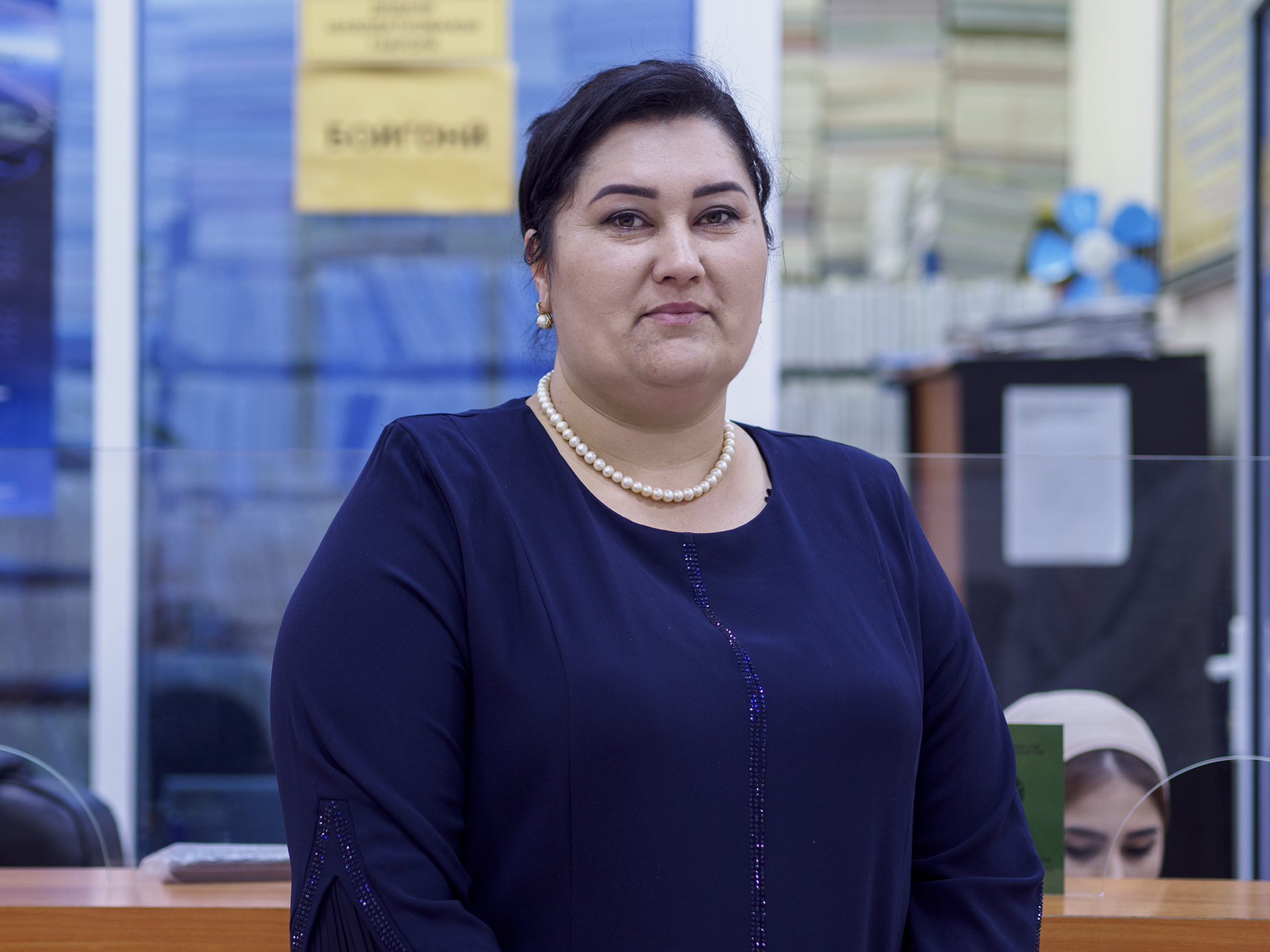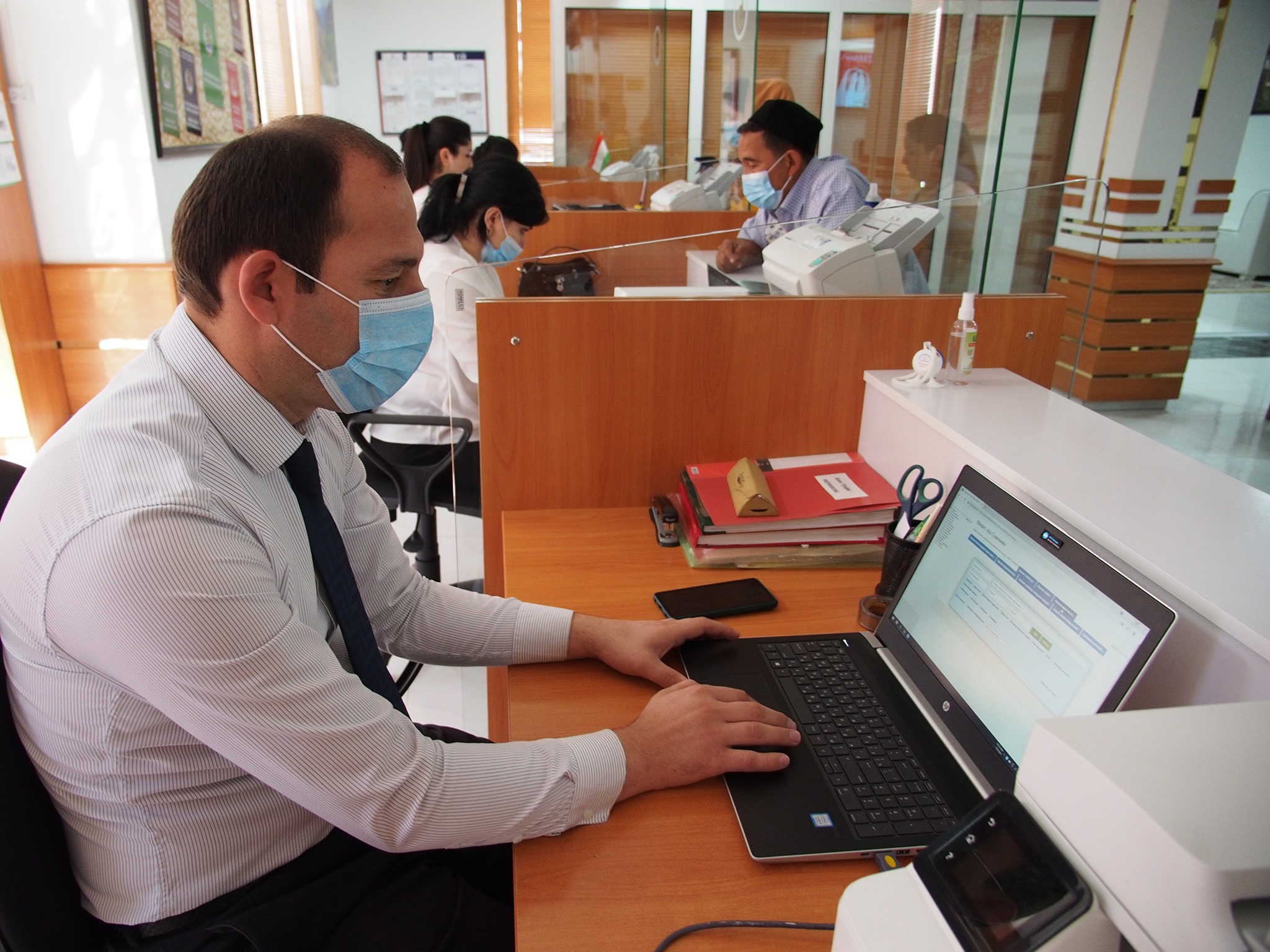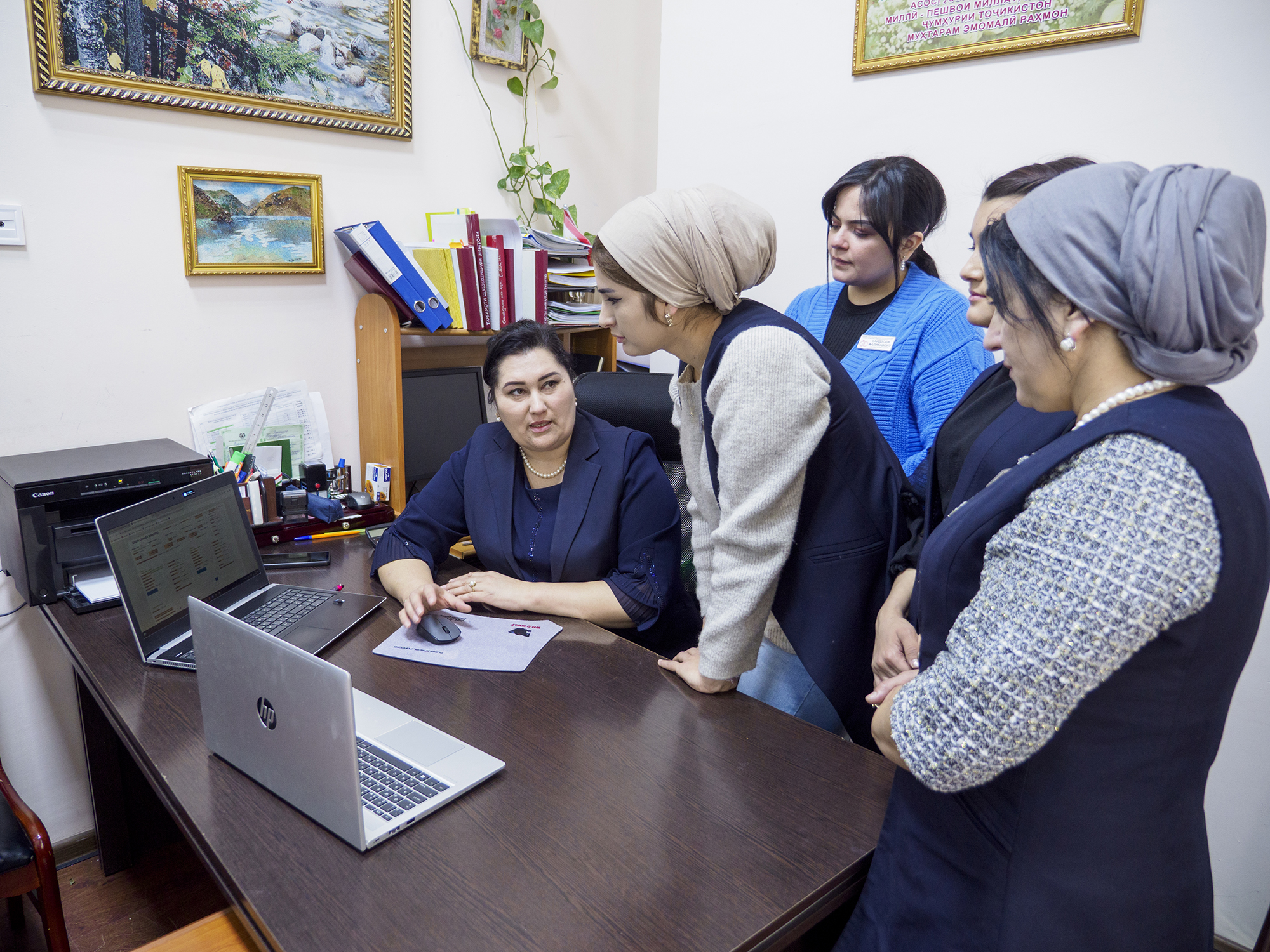Advancing Women's Empowerment Through Digital Technology
March 4, 2023

Growing up in a rural area in Shahrinav, Western Tajikistan, Nodira Muzaffari traveled by bus from her village to Dushanbe - 39 km away – every day to pursue her dreams of receiving a degree and serving her community. Nodira's parents' role was vital in achieving her educational goals, and she was among the few females with a degree in her neighborhood. Often parents in remote rural areas give less priority to girls' educational goals as compared to boys, impacting in choosing their gendered path. Traditionally, girls from her district married young, sometimes after dropping out of school before reaching 18.
"Child marriage ends childhood. Fifteen years ago, when I joined the civil registry system, the situation with child marriage was disturbing. This unlawful practice disproportionally affects girls, exposing them to early pregnancy and related risks. So, I chose to work with the government to help stop that harmful practice contributing to gender inequality", said Nodira.
The United Nations Development Program (UNDP) Civil Registry System Reform Project, funded by the Swiss Development Cooperation and the European Union, assists the government in reforming civil registration to increase people's access to critical services and assure quality service delivery by public institutions.
Nodira participated in several capacity-building initiatives on data protection, ICT literacy, and women's empowerment in civil registration. During a study visit to Chisinau, she learned about the achievements of Moldova's public institutions in digitizing their services and implementing e-governance.
"This knowledge highlighted how digital registration could boost the effectiveness and efficiency of government services while protecting human rights," said Nodira, sharing her experience.

The Shahrinav Civil Registry Office, led by Nodira during 2008- 2017, was among the first civil registry pilot projects, embracing an electronic information system and electronic data entry of events. The electronic system connects with the central databases of the civil registry and allows capturing and storing of important events. Using a digital platform and real-time updating of the civil registration data, Nodira swiftly transformed the Shahrinav Civil Registry Office into a prosperous flagship civil registry office.
"I am passionate about exploring innovations in the civil registration system. So, I was excited when I heard about the new mobile platform supported by UNDP, soon to be launched. It will allow people to register births and deaths beyond the walls of central registry offices and improve public access to civil registration services, especially in isolated mountain settlements, by removing the need for expensive long-distance travel", shared Nodira.
In 2017, the Ministry of Justice transferred her to the Hissar District, one of the country's largest districts with a low birth registration rate. Nodira's innovative and digital thinking and ability to promote and transfer digital knowledge to colleagues made the Hissar Civil Registry Office successful, with a good record of timely civil registration.

"Nodira belongs to a new generation of female leadership who broke the glass ceiling and propelled digital initiatives and innovations. She supports and trains her female colleagues to develop their digital skills", said Ms. Shahodat Khaidarova, a retired civil registration expert and her mentor.
Since 2022, Nodira has been heading Somoni civil registry office in the capital. Just like when she was a student, she daily travels 39 km to Dushanbe and returns home to Shahrinav to pursue her goal–to protect human rights and ensure people's socio-economic development through accessing their legal documents.
UNDP remains committed to supporting women's leadership and promoting digital technology and innovations in Tajikistan.

 Locations
Locations



